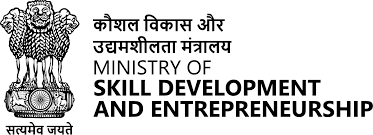Unlocking Potential: The Power of Skill Development

The Importance of Skill Development
Skills are the foundation of success in any field. Whether it’s in the workplace, academia, or personal life, developing and honing your skills is crucial for growth and advancement. Skill development is a continuous process that not only enhances your abilities but also opens up new opportunities and possibilities.
One of the key benefits of skill development is increased efficiency. By improving your skills, you can perform tasks more effectively and with greater precision. This can lead to higher productivity, better results, and ultimately, success in your endeavours.
Moreover, skill development helps you stay competitive in today’s rapidly changing world. As technologies evolve and industries transform, having up-to-date skills is essential to remain relevant and marketable. By constantly learning and improving your skills, you can adapt to new challenges and stay ahead of the curve.
Another important aspect of skill development is personal growth. Acquiring new skills not only boosts your confidence but also broadens your horizons. It allows you to explore new interests, discover hidden talents, and unleash your full potential.
Furthermore, skill development fosters innovation and creativity. By expanding your skill set, you can approach problems from different perspectives and come up with unique solutions. This creative thinking not only benefits you personally but also contributes to the progress of society as a whole.
In conclusion, skill development is a lifelong journey that offers numerous benefits. Whether you’re looking to advance your career, pursue new passions, or simply grow as an individual, investing in skill development is key to unlocking a world of possibilities.
Six Essential Tips for Effective Skill Development
- Set clear and achievable goals for skill development.
- Practice regularly to improve your skills consistently.
- Seek feedback from peers or mentors to identify areas for improvement.
- Explore different learning resources such as books, courses, and online tutorials.
- Step out of your comfort zone to challenge yourself and grow your skills.
- Stay patient and persistent as skill development takes time and effort.
Set clear and achievable goals for skill development.
Setting clear and achievable goals for skill development is essential for progress and growth. By defining specific objectives, you can focus your efforts and track your improvement effectively. Clear goals provide a roadmap for your development journey, guiding you towards success step by step. Moreover, achievable goals help maintain motivation and momentum, as reaching milestones boosts confidence and encourages further advancement. By setting clear and achievable goals for skill development, you set yourself up for success and ensure continuous progress towards mastering new abilities and achieving your full potential.
Practice regularly to improve your skills consistently.
Consistent practice is essential for skill development. By dedicating time regularly to honing your abilities, you can make steady progress and see tangible improvements over time. Whether it’s mastering a musical instrument, learning a new language, or refining your professional skills, regular practice helps reinforce learning and build muscle memory. By staying committed to practising consistently, you can enhance your skills effectively and achieve your goals more efficiently.
Seek feedback from peers or mentors to identify areas for improvement.
Seeking feedback from peers or mentors is a valuable strategy for skill development. By actively soliciting input from others, you can gain valuable insights into your strengths and weaknesses, helping you identify areas for improvement. Constructive feedback provides a fresh perspective and allows you to pinpoint specific skills that may need further development. Embracing feedback with an open mind can lead to targeted growth opportunities and ultimately enhance your overall skill set.
Explore different learning resources such as books, courses, and online tutorials.
To enhance your skill development, it is beneficial to explore various learning resources such as books, courses, and online tutorials. By diversifying your sources of knowledge, you can gain insights from different perspectives and approaches. Books offer in-depth information and timeless wisdom, while courses provide structured learning experiences tailored to specific skills. Online tutorials, on the other hand, offer convenience and flexibility, allowing you to learn at your own pace. By utilising a combination of these resources, you can broaden your understanding and acquire a well-rounded skill set that will propel you towards success in your personal and professional endeavours.
Step out of your comfort zone to challenge yourself and grow your skills.
Stepping out of your comfort zone is a powerful strategy for skill development. By pushing yourself beyond familiar boundaries and taking on new challenges, you not only test your capabilities but also discover untapped potential within yourself. Embracing discomfort is where true growth happens, as it forces you to adapt, learn, and evolve. So, don’t be afraid to challenge yourself and explore unfamiliar territories – it’s in those moments of discomfort that you’ll find the greatest opportunities for skill enhancement and personal development.
Stay patient and persistent as skill development takes time and effort.
Staying patient and persistent is crucial when it comes to skill development, as mastering new abilities requires time and dedication. It’s important to understand that progress may not happen overnight, but with consistent effort and perseverance, you can gradually improve and achieve your goals. By maintaining a positive attitude and staying focused on your development journey, you can overcome challenges and ultimately see the fruits of your hard work pay off. Remember, Rome wasn’t built in a day, and neither are skills perfected in a single attempt – so stay patient, stay persistent, and trust in the process.
